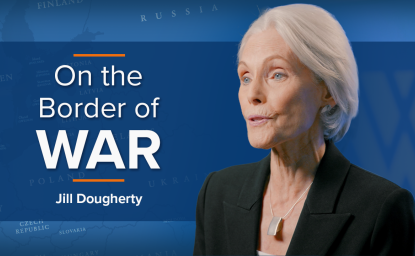The Road Ahead in Iraq
The elections do not complete the task in Iraq. Former Congressman Lee Hamilton reviews two years of U.S. involvement, and what we need to do to succeed.
The elections do not complete the task in Iraq. Former Congressman Lee Hamilton reviews two years of U.S. involvement, and what we need to do to succeed.
Americans understandably share in the joy of Iraq's recent elections. But we must not content ourselves that the hard work in Iraq is largely completed; on the contrary, so much lies ahead.
The elections were a remarkable demonstration of Iraqi spirit and the resolve of coalition armed forces. Votes were an act of courage; hope reasserted itself amidst the carnage and cloud of insurgency; and Iraqis took an important step towards building a legitimate and democratic government. Yet an election of a provisional assembly does not make a democracy; nor does it settle challenges like the growing insurgency, the often competing demands of Kurds, Sunnis, and Shiites, and the role of Islam in the Constitution.
As we approach the second anniversary of the invasion, we would do well to assess some missteps made along the way that have contributed to the high costs of the Iraq war – in lives and resources – so that we try to avoid further missteps in the future. Thus far, we have not always planned well for difficult scenarios. We did not adequately predict or plan for the cost of the war, leading to enlarged deficits, and an overstretched military facing serious retention and recruitment problems. Too few troops were provided for occupation, the consequences of looting and a breakdown in civil order were not anticipated, resources were not sufficiently earmarked for basic services, and the breadth and staying power of the insurgency has been consistently underestimated.
Our government could have organized itself better for the task of inter-agency coordination. The Department of Defense was too dominant, initially casting favor on a handful of Iraqi exiles, and crowding out agencies that had critical expertise on Iraq, the region and reconstruction projects. We did not obtain significant help from allies other than the United Kingdom, and much of the Islamic world was alienated. Congressional oversight was severely lacking – not enough members were asking tough questions, misconduct at prisons like Abu Ghraib was not ferreted out, and optimistic assumptions were not scrutinized.
The most damaging mistake may have been excluding too many Iraqis. Dissolving the Iraqi army led to tens of thousands of armed, angry and unemployed Iraqis, many Sunni, who became a recruiting base for insurgents. Efforts to train Iraqi security services did not receive top priority. Contracts for reconstruction relied too heavily on foreign companies and workers, feeding frustration with the U.S. among unemployed Iraqis. Certain factions – particularly Sunnis – saw the political process as exclusionary.
Despite these missteps, there is a chance for a positive outcome in Iraq. The most important task now is nurturing an inclusive political process. We must encourage the majority Shiites to embrace minority rights; persuade the Kurds to pursue their aspirations through a unified Iraq; and convince Sunnis that there is a place for them. We should also reach out to other countries to shoulder some of the burden, while providing increased international legitimacy. This will take skillful diplomacy.
Violence must not be permitted as a tool of political leverage. It does not take a huge percentage of the population to sow chaos and incite civil war. Rolling back the insurgency will require American force, a greater emphasis on training for Iraqi security services, and a political process viewed as legitimate by Sunnis, Kurds, Shiites, and the other smaller minorities. Ideally, the Constitution can serve as a kind of peace treaty, protecting minority rights, while creating a legitimate government – perhaps a loose confederation apportioning power to Iraq's different factions. Kurds need some autonomy without independence or civil war. Islam must play a unifying role, without alienating segments of Iraqi society. Reconstruction must be jumpstarted, jobs created, and oil wealth shared; otherwise competition – possibly violent – is inevitable.
The United States must make clear – again and again – that our goal is to leave Iraq to Iraqis, not to maintain military bases, claim oil resources, or impose a particular government. We do not want to stay indefinitely. Nor should we leave abruptly on a rigid timetable. The goal should be a gradual reduction of the American commitment, and a process that leads to a stable, non-threatening Iraq based on democratic principles – not an Iraq created in America's image.
The elections put us on another peak in Iraq, but there are surely more valleys ahead. Leaving an Iraq in chaos or civil war would be bad for Americans, and unfair to Iraqis. All of us have an interest in seeing America's huge commitment in blood and treasure reduced. To hasten that day, we must heed the lessons of the last two years, and move forward in a spirit of inclusiveness.


